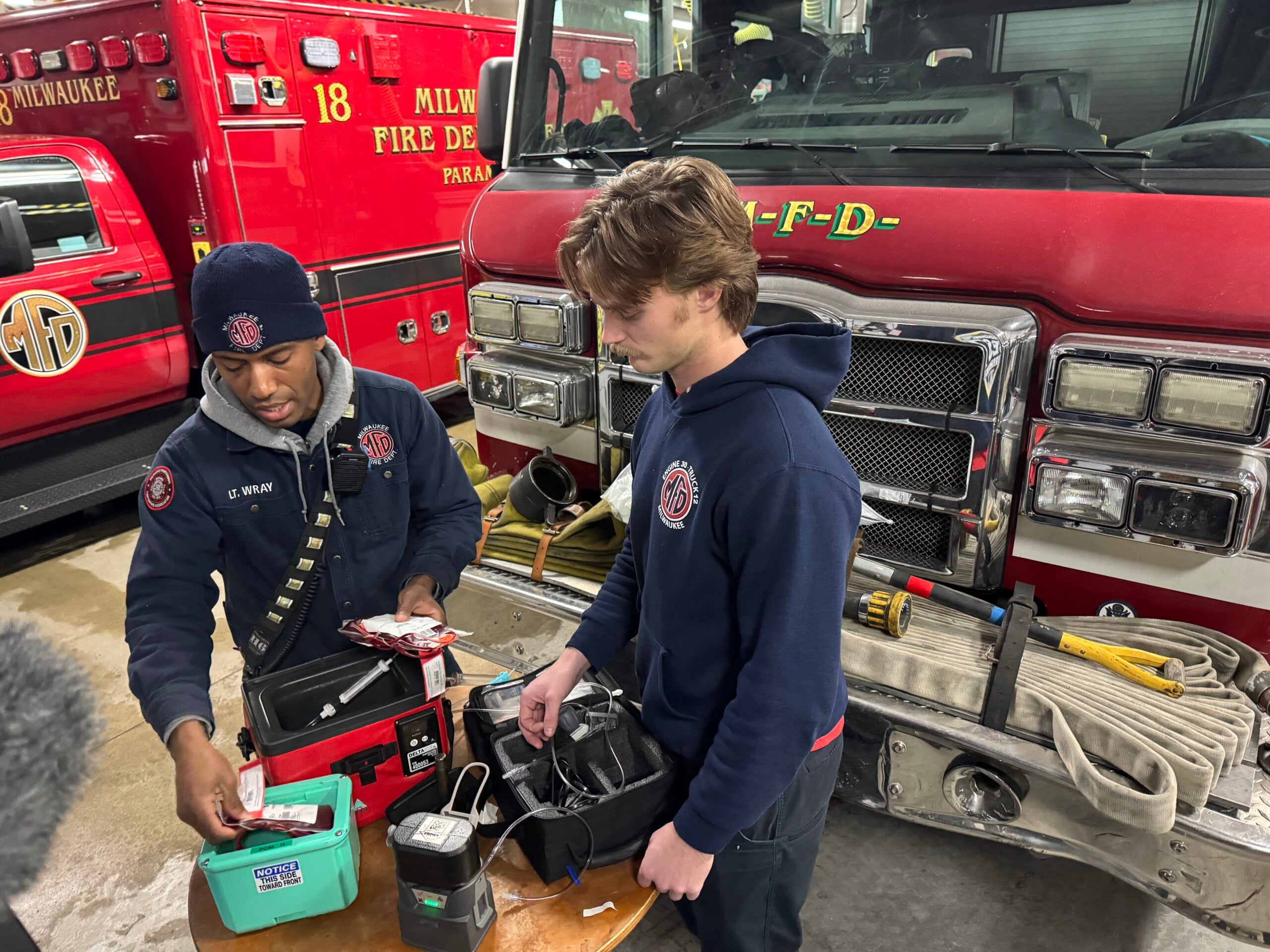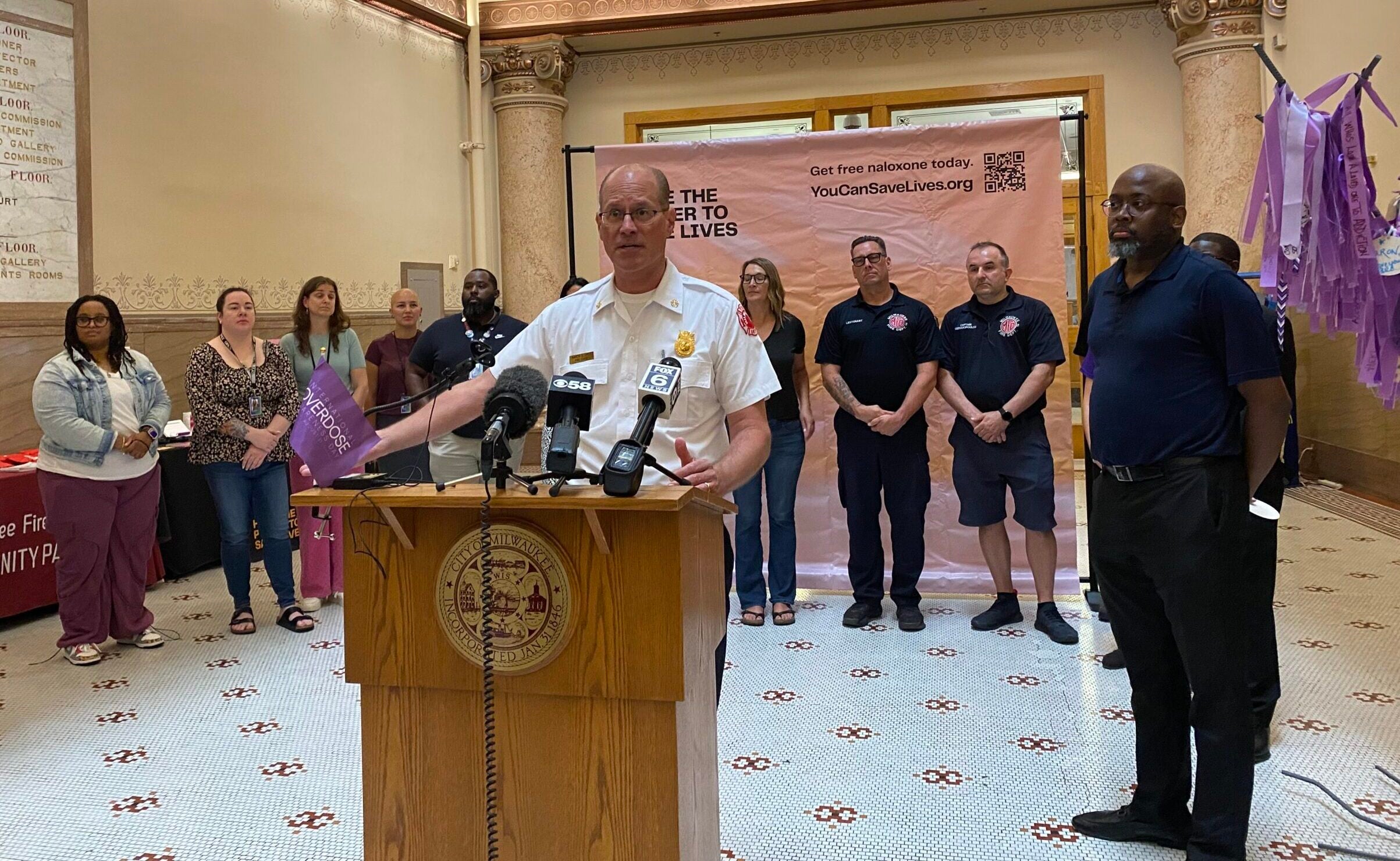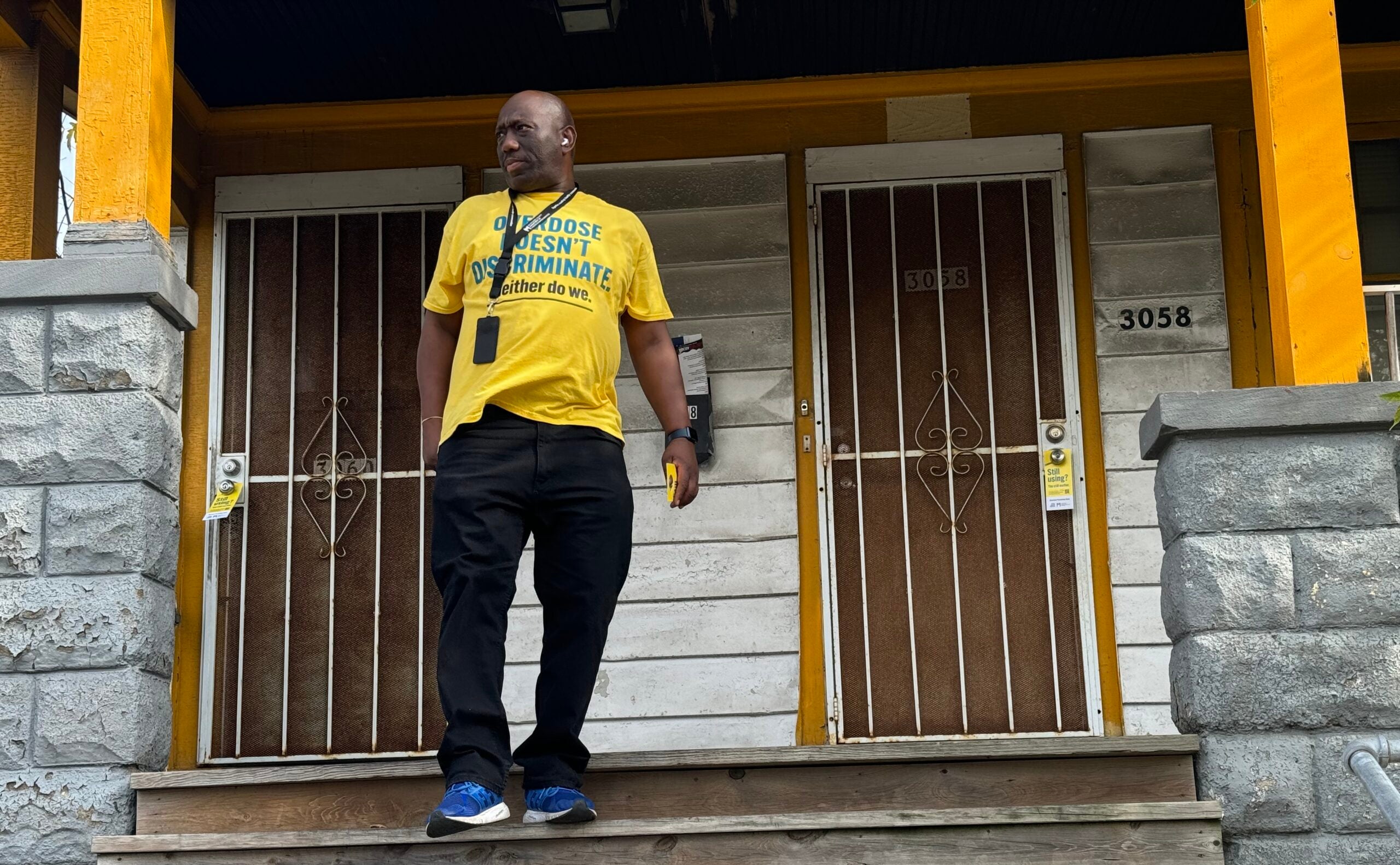The West Allis Fire Department is believed to be the first fire department in the state to offer individuals buprenorphine, a medication aimed at treating an opioid use disorder.
Buprenorphine helps minimize withdrawals and can prevent overdoses. Trained members of the West Allis Fire Department are now offering it when responding to an overdose, after the state approved its use for first responders and paramedics last year. Officials say the goal is to give the person a single dose or the first few doses of the medication to last until they can get into long-term care.
“This is pretty new nationally, but certainly new to Wisconsin and Milwaukee County,” said Ben Weston, the chief health policy advisor for Milwaukee County.
News with a little more humanity
WPR’s “Wisconsin Today” newsletter keeps you connected to the state you love without feeling overwhelmed. No paywall. No agenda. No corporate filter.
The medication can be given to a person who is experiencing opioid withdrawal. It dissolves in the mouth and binds to the same receptors that opioids do. It’s also been approved by the U.S. Food and Drug Administration to treat opioid use disorders.
“It’s a very safe medication to give, and it’s very effective for patients who are starting on it,” Weston said. “In short, what it really does is it facilitates recovery.”
The fire department is partnering with Milwaukee County and the Medical College of Wisconsin in offering the medication through a three-year, $900,000 federal grant. That money is also being used to pay for a peer counselor and community paramedic to help with the work. The program comes as Milwaukee County has seen a record number of overdose fatalities for four years in a row.
First responders in Milwaukee County already offer Narcan, a nasal spray that reverses opioid overdoses. But buprenorphine can be used to help prevent future overdoses after Narcan is administered.
Officials are hopeful buprenorphine will also help people get into long-term treatment, as Weston said the goal is for the patient who received the medication to go to the hospital where they can learn about treatment options. But he understands that not everyone may want to go to the hospital because of worries about finances or embarrassment.
“For those people who don’t want to go to the hospital, they can still get that treatment in the field and then the teams at West Allis Fire Department will work to connect them with outpatient resources, as well,” Weston said.
Weston said individuals who are given the medication are twice as likely to stay in treatment programs for an opioid use disorder compared to those who don’t take it. He also said they’re less likely to use illicit opioids and less likely to overdose.
Medical College of Wisconsin Dr. Jennifer Hernandez-Meier said she believes this is one of the few examples of a municipal fire department offering the medication not only in the state, but in the nation.
“This important work provides additional opportunity for those who have an opioid use disorder to receive life-saving treatment for their medical disorder,” Hernandez-Meier said during a press conference announcing the program.
Jeremy Triblett, a prevention manager with the Milwaukee County Behavioral Health Division, said he’s excited about the new initiative.
“It allows people to continue their recovery journey if they so wish, where they are at at that moment until they are referred to a clinic or another space that allows them to take the next step,” Triblett said.
The move is yet another in an effort to curb overdose deaths, as 644 people died of a drug overdose in Milwaukee County in 2021.
Wisconsin saw a 900 percent increase in opioid overdose deaths from 1999 to 2018, while such deaths have reached record levels in more recent years. In 2021, the state Department of Health Services reported a record 1,427 opioid overdose deaths.
Milwaukee County Executive David Crowley signed a bill releasing $11 million to 15 different projects last spring to help the issue, ranging from treatment for county prisoners who are suffering from opioid use disorders to vending machines filled with free Narcan and fentanyl test strips.
Do you need help?
The Substance Abuse and Mental Health Services Administration has a free, 24/7, 365-day-a-year helpline for individuals and families facing mental and/or substance use disorders. Call 800-662-HELP (4357). You can also visit their website at www.samhsa.gov.
You can find the closest Narcan provider on the Wisconsin Narcan Direct program website at bit.ly/narcandirect.
Wisconsin Public Radio, © Copyright 2026, Board of Regents of the University of Wisconsin System and Wisconsin Educational Communications Board.




